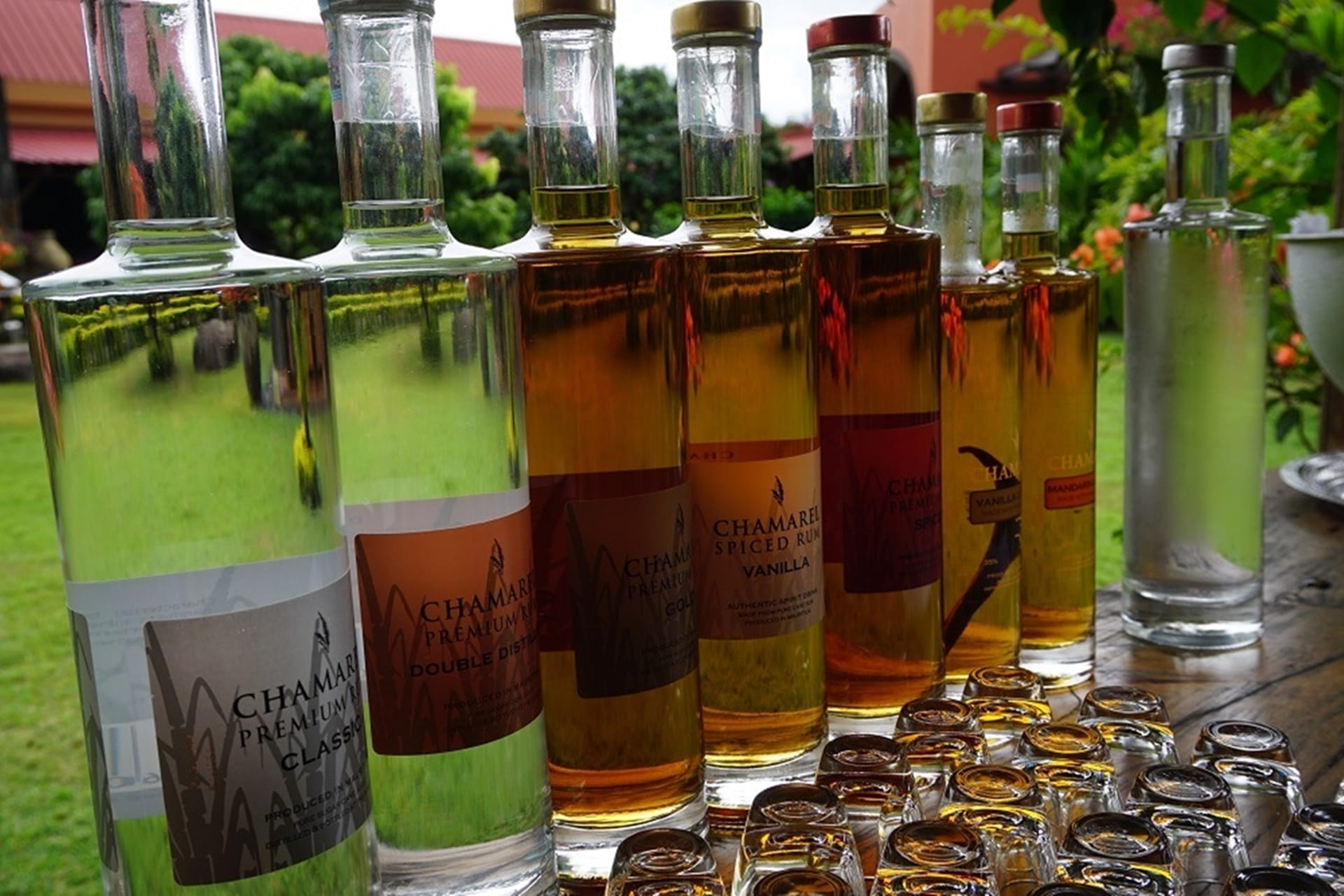5 keys to remember
- Tailored
- Feel at Home
- Authenticity
- Ethics
- Privacy

Mauritius can trace its long tradition of rhum production through its history with sugar cane. The island produces both industrial and agricultural rhum in its distilleries. The local rhums are of superior quality with unique flavours and aromas: white, golden, amber or barrel-aged rhums. Spiced, flavoured or infused rhums can also be tasted in designated tasting facilities and you can take a number of fine ones.
The history of Mauritian rhums is linked to the sugar cane culture, one of the pillars of the island’s economic development. The sugar factories quickly realized the need to make maximum use of the cane and its residues. This is how the first distilleries came into being and how agricultural rhum was born, obtained by fermentation and distillation of pure sugar cane juice called “vesou”. Industrial rhum, on the other hand, is obtained by distilling molasses, a by-product of sugarcane production. In terms of taste, agricultural rhum tends to have a more complex taste and be richer in the natural flavours of the sugar cane, while industrial rhum tends to be sweeter and more neutral in flavour.

The number of rhum distilleries in Mauritius is limited, with only six distilleries at the last census, including the famous Chamarel Distillery, Medine and St Aubin. There are, however, more than 60 producers who buy alcohol and brew or age the rhum by themselves. These range from brands such as NPK, which appeals to the younger generation with flavours of melon, mint liquorice and apple or ginger, to brands such as Blue Mauritius, which ages the rhum into a rich, woody product, close to cognac in taste and targeting a more challenging customer audience.
Mauritius’ distilleries propose guided tours combining discovery of the distillation process and tasting/sale. The Rhumerie de Chamarel is one of the few distilleries still in operation that grows its own sugar cane. The sugar cane is carefully selected and grown exclusively for the production of Chamarel rhums: there lies the main secret behind its fine quality. The harvest is done by hand, without burning the crops, and takes place from July to December (https://www.rhumeriedechamarel.com/ ).

Apart from the distilleries, you can taste the different types of rhums that Mauritius has to offer in different places in optimal conditions of comfort. One such place is the Litchquor Tasting Lounge in Grand-Baie in the north of the island. It is the perfect place to discover and taste a variety of top quality rhums, either neat or accompanied by delicious treats such as chocolate or other products that highlight the unique notes of each particular rhum. You can explore the variety and richness of brands such as Gold of Mauritius, Solera 5 and Rom Club.
You can also head to the bars and restaurants that specialize in rhums. Among them is the Rhum Shed, located in Cap Malheureux, which offers a wide selection of local and international types of rhums, as well as original rhum-based cocktails. In addition, most restaurants and bars offer homemade ‘arranged rhums’.

In distilleries, but also in all food and tourist shops, as well as in duty-free shops at the airport. There are a number of varieties of locally produced rhum, which are sold along with spice and herb packs to help you make your own mixtures. Local markets have stalls selling bottles of locally produced rhum as well as local dishes using it. The bottles are usually elegant and make great gifts to bring back from your stay in Mauritius.

Start with our selection of local neat and arranged rhums at our Mythic Suites & Villas restaurant, L’Atelier, for an introduction to the flavours of Mauritian rums (http://www.atelier-restaurant.mu/fr/ ).